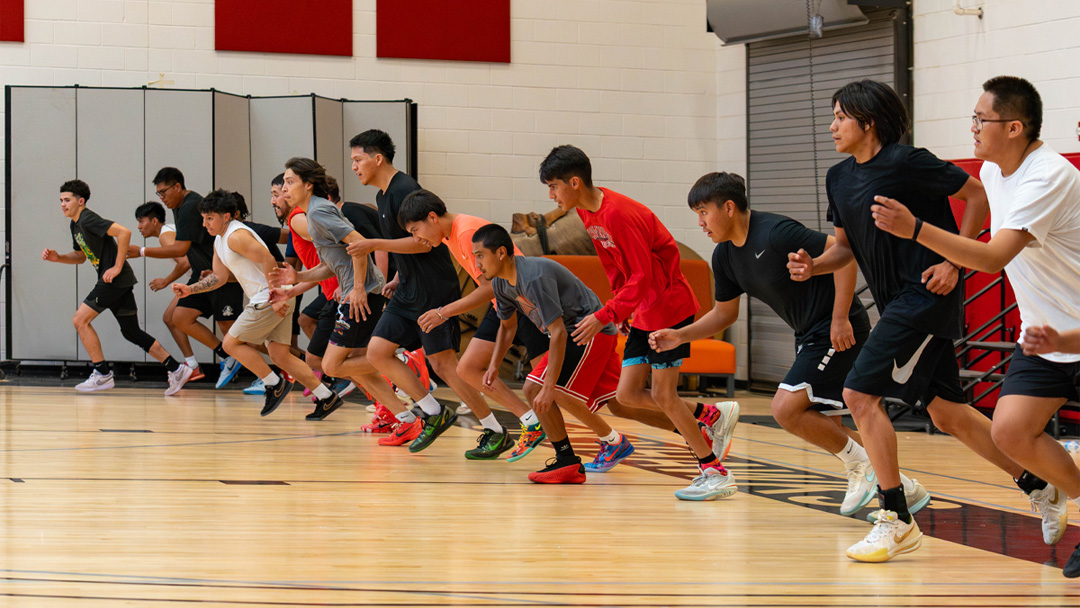
- Details
- By Native News Online Staff
From June 16 to 18, Navajo Technical University (NTU) hosted student-athletes from across the region as they competed for a place on the Men’s Skyhawks Basketball Team. Under the leadership of Head Coach Michael McMillan and with support from current players, the tryouts challenged participants both physically and mentally—testing their endurance, skills, and determination.
Coach McMillan, a proud member of the Mississippi Band of Choctaw Indians, focused on finding athletes prepared to excel at the collegiate level. Over the course of three days, players went through intensive drills aimed at evaluating shooting accuracy, ball handling, decision-making, and on-court awareness. Scrimmages provided an opportunity to assess how well athletes performed under game-like pressure. Beyond athletic talent, Coach McMillan also looked for qualities like teamwork, coachability, and a strong, positive mindset.
“We had 24 high school athletes try out for the upcoming season,” said Coach McMillan. “Each athlete brought great energy and talent to the court, and it was a tough decision. In the end, I selected 10 athletes who I believe will contribute to the success of our program. We’re excited for the season and hope to see the community out supporting the Skyhawks at our games.”
Coach McMillan lives in Crownpoint, NM, with his wife Joycilene and their three children—Amaya, Kordell, and Miley.
The NTU Men’s Basketball Team remains dedicated to competing at high levels in conference, regional, and national tournaments. With a legacy of excellence, NTU Athletics continues to promote sportsmanship, academic achievement, and competitive spirit in alignment with the university’s mission.
More Stories Like This
Native News Weekly (August 25, 2024): D.C. BriefsNavajo Nation Mourns the Passing of Former Vice President Rex Lee Jim
Deb Haaland Earns Endorsement From Communications Workers of America Local 7076
University Soccer Standout Leads by Example
Two Native Americans Named to Democratic Congressional Campaign Committee's“Red to Blue” Program
Help us defend tribal sovereignty.
At Native News Online, our mission is rooted in telling the stories that strengthen sovereignty and uplift Indigenous voices — not just at year’s end, but every single day.
Because of your generosity last year, we were able to keep our reporters on the ground in tribal communities, at national gatherings and in the halls of Congress — covering the issues that matter most to Indian Country: sovereignty, culture, education, health and economic opportunity.
That support sustained us through a tough year in 2025. Now, as we look to the year ahead, we need your help right now to ensure warrior journalism remains strong — reporting that defends tribal sovereignty, amplifies Native truth, and holds power accountable.
 The stakes couldn't be higher. Your support keeps Native voices heard, Native stories told and Native sovereignty defended.
The stakes couldn't be higher. Your support keeps Native voices heard, Native stories told and Native sovereignty defended.
Stand with Warrior Journalism today.
Levi Rickert (Potawatomi), Editor & Publisher


